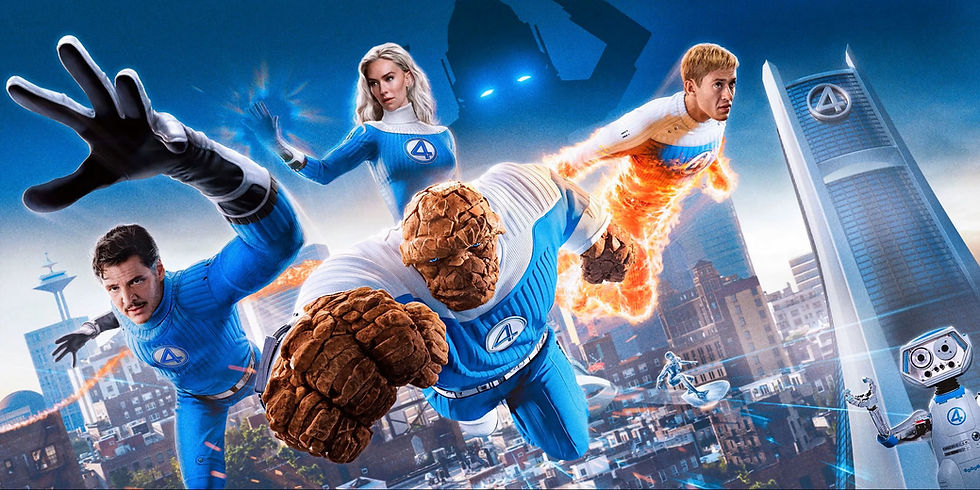Leaving Graceland
- Dec 20, 2023
- 4 min read
Writer-director Sofia Coppola's Priscilla (2023), with its slow yet measured pacing, reliance on conveying a historically clear-sighted yet emotionally intimate account told through Priscilla Presley's eyes (based on her 1985 memoir Elvis and Me), and lack of her famous ex-husband's music, is an excellent response and counter to the relentless fast pace, showy visual aesthetic, glossing over of historically sketchy details, and theatrically high energy of Baz Luhrmann's Elvis (2022). This is not meant to be a comparison between the two movies, as they are both excellent in their own right. However, when depicting Elvis and Priscilla's complicated relationship, the former provides a more realistic portrayal of what may have transpired behind Graceland's ornate gates. With that out of the way, on with the review.
Priscilla begins in 1959 with then-fourteen-year-old Priscilla Beaulieu (played by Cailee Spaeny) residing with her family in Bad Nauheim, Germany, near the U.S. Military base where her father (played by Ari Cohen) is stationed. Upon being invited to a party on the base, she meets the iconic singer Elvis Presley (played by Jacob Elordi), having recently been enlisted. She and the then-twenty-four-year-old Elvis begin dating shortly afterward despite her parents' reservations about their age gap and his celebrity status.
In 1962, three years after returning to the United States, Elvis invites Priscilla to Graceland, his Memphis, Tennessee estate, and takes her to Las Vegas, where she is introduced to prescription drug abuse before Elvis sends her back to Germany and convinces her parents to have their daughter move to Graceland and finish her senior year of high school.
Upon graduating, Priscilla moves into Graceland, and while welcomed with open arms by Elvis, most of his friends, family members, and business associates, she quickly finds herself being more controlled by Elvis and his parents with what clothes and makeup she wears, who she interacts with, and is often left isolated at Graceland during his long absences filming musical comedies in Los Angeles.
Eventually, the news of Elvis' multiple affairs with his famous female costars like Ann-Margret, coupled with his demands to Priscilla that she accept his behavior, takes a significant toll on her mental health, and her sense of isolation increases. Even after Elvis proposes to and marries Priscilla, and she has a baby girl named Lisa Marie, his intense work schedule on his '68 Comeback Special and his shows in Las Vegas further isolates her from him. In the end, she announces to him that she is filing for divorce and takes Lisa Marie with her as she drives away in her car.
First off, the two lead actors are highlights. I have admired and been a fan of Cailee Spaeny's work since seeing her film debut in 2018's Pacific Rim: Uprising. While that film wasn't great, she was that movie's highlight, and I saw great promise in her. Fast-forward to this movie, and not only is she excellent at portraying Priscilla Presley in her quiet vulnerability amidst the increasing isolation in not only Graceland but between her and Elvis, his rambunctious lifestyle, volatile mood swings, and boys' club atmosphere, but I am glad to see her receive international recognition for her acting talent in this film, which deservedly earned her the Volpi Cup for Best Actress at this year's Venice Film Festival. I genuinely cannot wait to see where she and her career go from here.
Jacob Elordi delivers the goods, conveying Elvis Presley's charismatic aura and emotionally raw extremes from an intimate partner and friend to an emotionally unpredictable and, at times, hot-tempered loose cannon. While this portrayal of Elvis will likely turn some viewers and longtime fans off, it is a refreshingly honest take on the legendary singer and performer that must be shown to the public. I admit I was not introduced to Elordi's acting as early as I was with Spaeny, but I admire his dedication here.
Another standout is Sofia Coppola's understated yet emotionally engaging direction. From the deliberately subdued approach to the historical settings, overall visual aesthetic, and production and costume design while keeping the story grounded in telling Priscilla's story to effectively utilizing a compilation of period-correct music and original musical compositions and Philippe Le Sourd's cinematography (which frequently uses wide angles in empty rooms that appear to make Priscilla look smaller and more alone than she is and clever framing of the camera on Priscilla during her scenes with Elvis to establish the growing emotional and physical distance between the two).
Initially, the entertainment seeker in me contemplated giving this film an 8 out of 10, given how the movie seemingly ended abruptly after Priscilla leaves Elvis, much like the Henrik Ibsen play, A Doll's House. However, after giving it much thought, I have more appreciation for Coppola's approach to addressing the subject matters of Priscilla and Elvis' age gap and the emotional nature of their relationship, along with showing the more unflattering side of Elvis, which may have contributed to his late daughter, Lisa Marie Presley's disowning of the script. Regardless of Elvis Presley's estate disowning the movie and not allowing the filmmakers to use his music, Priscilla excellently sheds light on a more grounded depiction of Elvis and Priscilla Presley's relationship, especially on a smaller budget than Baz Luhrmann's interpretation of the couple from the year prior. As uncomfortable as the truth about Elvis and his relationship with Priscilla is, see this film while you still can.
Final Score: 9 out of 10





Comments